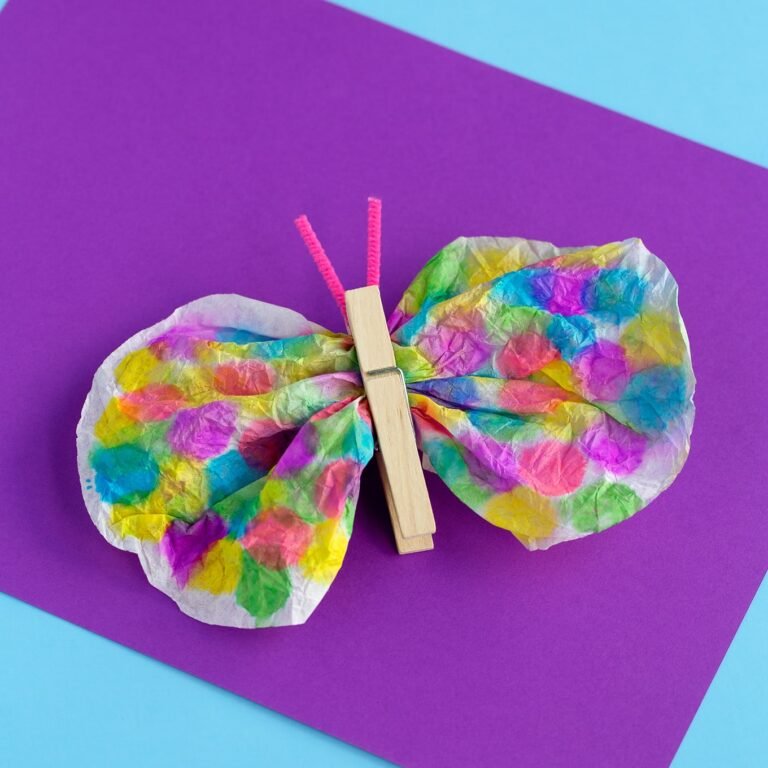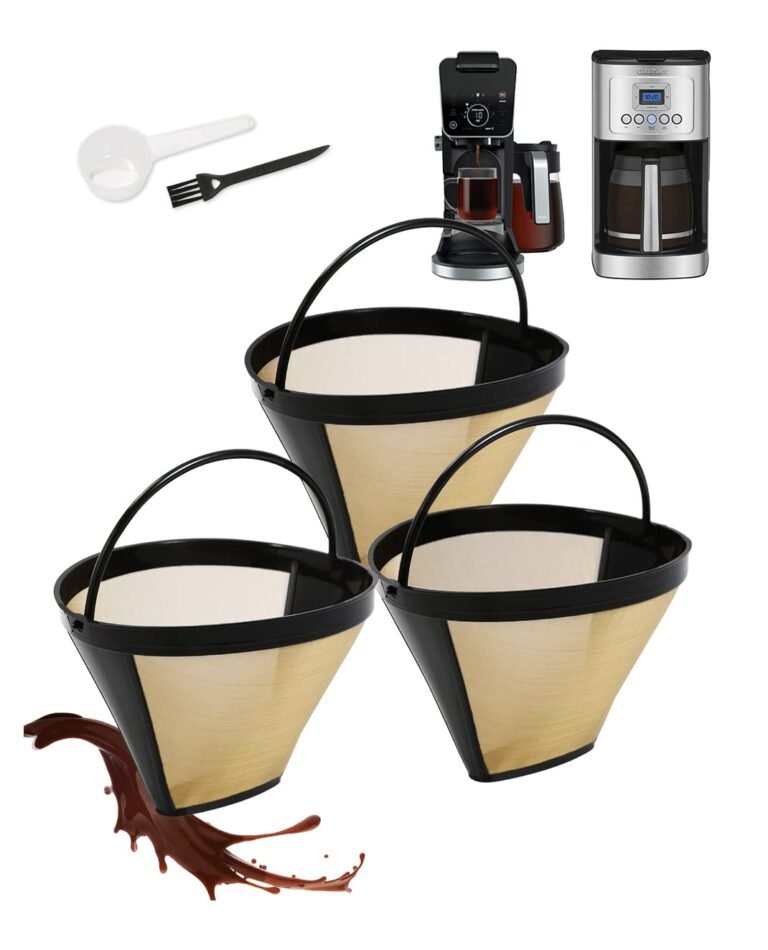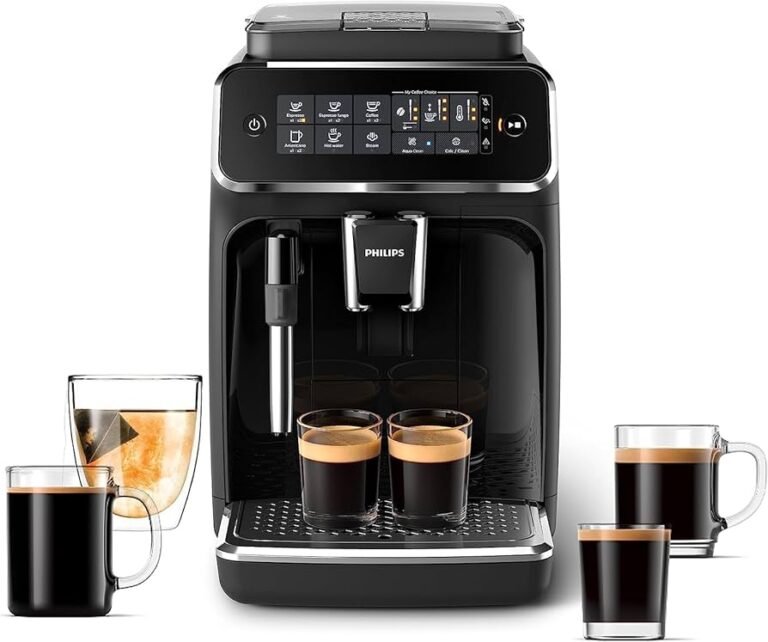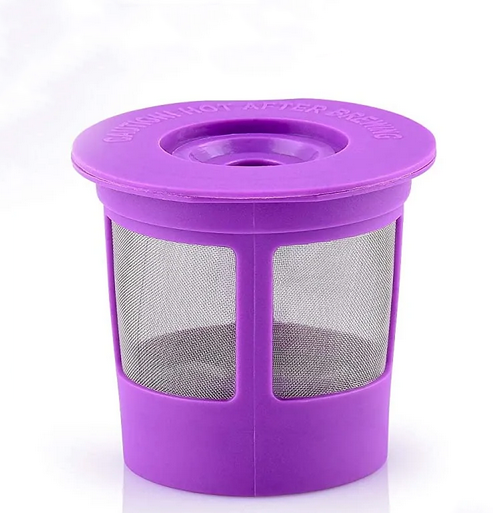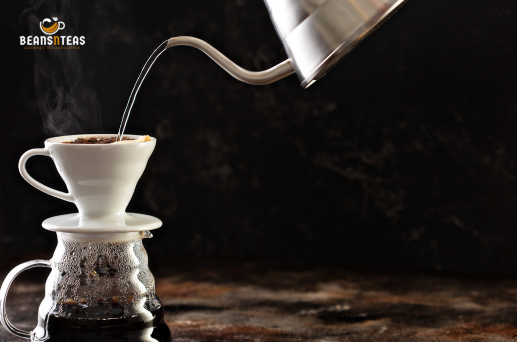Which coffee filter is best for toxic oils? This question is vital for health-conscious coffee drinkers.
The right filter can remove harmful oils from your coffee, ensuring a healthier cup each time. Coffee lovers often overlook the importance of their coffee filter. Many focus on the beans, but the filter plays a crucial role in the final brew.
Some filters can trap oils that may have negative health effects. These oils, called diterpenes, can raise cholesterol levels. Choosing the right filter can help you enjoy your coffee without worrying about these harmful substances. In this blog post, we will explore different types of coffee filters, examining their effectiveness in removing toxic oils. This guide will help you make an informed choice for a healthier coffee experience.
Introduction To Coffee Filters
Coffee filters are essential for brewing a clean and flavorful cup of coffee. They help remove unwanted particles and impurities. Choosing the right coffee filter can greatly impact the taste of your coffee. In this section, we’ll explore the purpose of coffee filters and their impact on coffee quality.
Purpose Of Coffee Filters
Coffee filters serve a crucial role in the brewing process. They trap coffee grounds, preventing them from entering your cup. This ensures a smooth and enjoyable coffee experience. Filters also remove oils that can make your coffee taste bitter. By filtering out these oils, they help create a cleaner and more balanced flavor.
Impact On Coffee Quality
The type of coffee filter you use affects the final taste of your brew. Paper filters tend to absorb more oils, resulting in a lighter and cleaner cup. Metal filters, on the other hand, allow more oils to pass through. This can lead to a richer and fuller-bodied coffee. The choice between paper and metal filters depends on your taste preference.
Some filters are designed to eliminate specific impurities. Charcoal filters, for example, can remove chlorine and other chemicals from your water. This can significantly improve the taste and quality of your coffee. The right filter can make a noticeable difference in your daily brew.

Credit: levooil.com
Types Of Coffee Filters
Choosing the right coffee filter can significantly impact the taste and healthiness of your coffee. Different types of filters can remove varying amounts of oils and sediments. Understanding the various options will help you make an informed decision.
Paper Filters
Paper filters are the most common and widely used. They come in two types: bleached and unbleached. Bleached paper filters are white and processed with chemicals to remove their natural brown color. Unbleached paper filters are brown and less processed.
- Advantages:
- Removes most oils and sediments
- Produces a clean, clear cup of coffee
- Biodegradable and compostable
- Disadvantages:
- Can alter the taste due to paper flavor
- Not reusable, adding to waste
Metal Filters
Metal filters are usually made from stainless steel or gold mesh. They are reusable and durable, making them an eco-friendly choice.
- Advantages:
- Allows oils and fine particles to pass through
- Produces a rich, full-bodied cup of coffee
- Cost-effective in the long run
- Disadvantages:
- Can be difficult to clean
- May let through bitter sediments
Cloth Filters
Cloth filters are less common but offer a unique brewing experience. They are made from materials like cotton or muslin and can be reused.
- Advantages:
- Removes most oils while allowing some through
- Produces a balanced cup of coffee
- Eco-friendly and reusable
- Disadvantages:
- Requires thorough cleaning and maintenance
- Can develop odors if not dried properly
Toxic Oils In Coffee
Coffee is a beloved morning ritual for many. But not everyone knows that coffee can contain toxic oils. These oils can affect your health. Understanding their sources and implications is crucial. So, what coffee filter is best for toxic oils? Let’s dive into the details.
Sources Of Toxic Oils
Not all coffee beans are created equal. Some beans contain higher levels of toxic oils. These oils come from poor farming practices. Pesticides and chemicals can leave residues. Processing methods also play a role. Beans roasted at high temperatures may release more oils. It’s important to choose high-quality beans.
Health Implications
Toxic oils in coffee can have several health implications. They may increase cholesterol levels. This can lead to heart problems. Some people might experience digestive issues. It can also cause inflammation. Long-term consumption can be harmful. Choosing the right filter can reduce these risks. A good filter traps most of the oils. This makes your coffee healthier.
Effectiveness Of Paper Filters
Choosing the right coffee filter can influence the taste and healthiness of your coffee. Paper filters are often recommended for their effectiveness in absorbing unwanted oils. These oils can affect the flavor and potentially carry toxins. Let’s explore why paper filters stand out.
Absorption Of Oils
Paper filters are excellent at absorbing coffee oils. These oils, known as diterpenes, can increase cholesterol levels. Paper filters trap these oils, resulting in a cleaner cup. This process not only improves taste but also makes your coffee healthier.
Metal filters allow most oils to pass through. This leads to a stronger flavor but with potential health risks. Cloth filters fall somewhere in between. They absorb some oils but not as effectively as paper filters.
Environmental Considerations
Many people worry about the environmental impact of paper filters. The good news is that paper filters are biodegradable. They break down quickly and can even be composted. This makes them a better choice for the environment than plastic or metal filters.
Reusable filters might seem more eco-friendly. However, they require regular cleaning with water and soap. This can lead to more water waste over time. Paper filters, especially unbleached ones, are a sustainable option.
In summary, paper filters excel at absorbing oils and are environmentally friendly. They offer a balanced choice for those wanting a healthier and eco-conscious coffee experience.
Benefits Of Metal Filters
Choosing the right coffee filter can impact your coffee’s taste and health benefits. Metal filters offer several advantages over other types. They are durable, reusable, and effective at filtering oils, which makes them a great option for coffee lovers.
Durability And Reusability
Metal filters are made from stainless steel or other sturdy materials. This makes them more durable than paper filters. They can withstand repeated use without tearing or losing their shape. A metal filter can last for years with proper care. This reduces waste and the need to buy new filters frequently.
Reusable filters also save you money in the long run. You won’t need to purchase disposable filters regularly. This makes metal filters a cost-effective choice. Plus, using a reusable filter is better for the environment. It reduces the amount of paper waste generated from brewing coffee.
Oil Filtration Efficiency
Metal filters allow more coffee oils to pass through compared to paper filters. This can enhance the flavor and richness of your coffee. These oils contribute to the body and mouthfeel of the brew. Coffee brewed with a metal filter often has a bolder taste.
Here’s a quick comparison of oil filtration efficiency:
| Filter Type | Oil Filtration |
|---|---|
| Metal Filter | High |
| Paper Filter | Low |
Using a metal filter can also retain beneficial compounds found in coffee oils. These compounds have antioxidant properties, which can be good for your health. This makes metal filters a good choice for those who want to maximize the health benefits of their coffee.

Credit: www.karlyalane.com
Cloth Filters And Oil Filtration
Cloth filters are a popular choice for coffee lovers seeking a cleaner brew. These filters are known for their ability to remove toxic oils from your coffee. They offer a balance between effective filtration and a full-flavored cup of coffee.
Natural Filtration Properties
Cloth filters are made from natural materials like cotton or muslin. These materials have excellent filtration properties. They can trap fine particles and oils that paper filters might miss. The result is a coffee that is both rich in flavor and free from unwanted oils. Cloth filters allow the natural oils and fine particles to pass through, enhancing the coffee’s taste.
Maintenance And Care
Maintaining cloth filters is crucial for their longevity and performance. After each use, rinse the filter thoroughly with hot water. Avoid using soap as it can leave a residue. It’s important to dry the filter completely to prevent mold growth. Store it in a clean, dry place.
For deeper cleaning, boil the filter in water for about 10 minutes. This helps to remove any trapped oils and particles. Regular boiling can keep the filter in optimal condition. Here’s a simple cleaning routine:
- Rinse the filter immediately after use.
- Dry it completely before storing.
- Boil it once a week for deep cleaning.
Following these steps ensures your cloth filter remains effective. A well-maintained filter can last for several months, making it a cost-effective choice.
| Maintenance Step | Frequency |
|---|---|
| Rinse with hot water | After each use |
| Dry completely | After each use |
| Boil for deep cleaning | Once a week |
Cloth filters not only improve the taste of your coffee but also reduce waste. They are reusable and eco-friendly. This makes them an excellent choice for environmentally conscious coffee drinkers.
Expert Opinions
When choosing the best coffee filter to avoid toxic oils, expert opinions can provide valuable insights. Both baristas and health experts have unique perspectives on this topic. Their advice can help you make an informed decision.
Barista Recommendations
Baristas have extensive experience with various coffee filters. They can offer practical advice based on their day-to-day usage.
Many baristas recommend using paper filters. These filters are effective in trapping oils and fine coffee particles. This results in a cleaner cup of coffee. Bleached paper filters are often preferred for their neutral taste.
Some baristas also suggest metal filters for a different flavor profile. Metal filters let more oils pass through, which can enhance the richness of the coffee. However, they may not be as effective in filtering out toxic oils.
Health Expert Views
Health experts focus on the impact of coffee oils on your health. They often have different recommendations compared to baristas.
Most health experts advise using unbleached paper filters. These filters are free from harmful chemicals. They are efficient at removing diterpenes, a type of oil linked to health risks.
Cloth filters are another option suggested by some health professionals. Cloth filters are reusable and eco-friendly. They are also good at filtering out oils without losing beneficial compounds.
For those concerned with cholesterol levels, paper filters are generally the safest choice. They significantly reduce the amount of cafestol, a compound that can raise cholesterol.
| Type of Filter | Barista Recommendation | Health Expert View |
|---|---|---|
| Paper Filters | Effective in trapping oils and particles | Reduces diterpenes and cafestol |
| Metal Filters | Enhances coffee richness | Less effective in filtering toxic oils |
| Cloth Filters | Reusable and eco-friendly | Good at filtering oils |
In summary, both baristas and health experts have useful insights on the best coffee filters for avoiding toxic oils. Paper filters are generally recommended by both groups for their effectiveness and health benefits.
Choosing The Right Filter
Choosing the right coffee filter can make a big difference. It affects both flavor and health. Some filters can remove toxic oils from your coffee. These oils, called diterpenes, can raise cholesterol levels. Picking the right filter is crucial for a healthier cup of coffee.
Personal Preferences
Everyone has different tastes in coffee. Some prefer a strong, bold flavor. Others like a smoother, cleaner taste. Paper filters are great for those who want a cleaner cup. They remove most of the oils and fine particles. Metal filters, on the other hand, allow more oils through. This results in a richer, more robust flavor. Your choice depends on what you enjoy most in your coffee.
Balancing Quality And Health
Paper filters are effective at removing harmful oils. They also trap more coffee grounds. This means a clearer, less gritty coffee. But, some people feel that paper filters absorb too much flavor. Metal filters let more oils through. This can make the coffee taste richer. But, it also means more diterpenes in your cup. Choosing a filter that balances taste and health is key.
:max_bytes(150000):strip_icc()/InexpensiveCoffeeMakersLead-6763ea65a4e744589b3c589afd8929bb.jpg)
Credit: www.seriouseats.com
Frequently Asked Questions
What Are Toxic Oils In Coffee?
Toxic oils in coffee are harmful compounds. They can include diterpenes such as cafestol and kahweol. These oils can increase cholesterol levels.
How Do Coffee Filters Remove Toxic Oils?
Coffee filters trap harmful oils. They prevent them from reaching your cup. Paper filters are particularly effective at this.
Are Paper Filters Better For Health?
Yes, paper filters are better for health. They effectively remove most toxic oils. This reduces potential health risks.
Which Coffee Filter Is Most Effective?
Paper filters are the most effective. They remove the majority of harmful oils. They also provide a cleaner taste.
Conclusion
Choosing the best coffee filter for toxic oils is crucial. Paper filters are effective and affordable. They reduce harmful oils and improve taste. Metal filters allow oils through, offering richer flavor. Cloth filters balance oil reduction and taste. Consider your health and flavor preferences.
Experiment to find your perfect match. Clean filters regularly for best results. Enjoy a healthier, tastier cup every time. Happy brewing!

